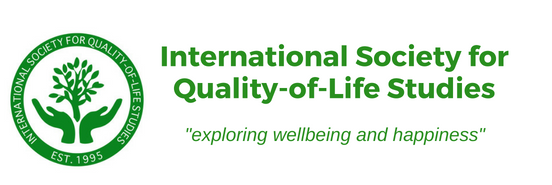Well-being 2022: knowledge for informed decisions,
to be held in Luxembourg on 1 – 4 June 2022. Many of you know we had planned to host this conference in 2020 but postponed it due to COVID-19. The current plans have expanded some to include a pre-conference workshop. For complete details see below, the attached call for papers, or the website https://www.wellbeing2022.lu. To avoid cancelation or further postponement, we anticipate making use of the CovidCheck system, which certifies whether someone is fully vaccinated, recently recovered, or has tested negative in the past 48 or 72 hours. See details here.
-
The deadline for application is 31 January 2022.
Please share with anyone potentially interested.
The Organizing Committee
Call for papers:
International Conference “Well-being 2022: knowledge for informed decisions”
Hotel Parc Bellevue, Luxembourg, 1 – 4 of June 2022
Organized by the National Institute of Statistics and Economic Studies (STATEC) and the Ministry of the Economy, Luxembourg
This international conference will bring together leading scholars to discuss the quest for better lives. Economists traditionally advocated economic growth as the foremost policy goal, but now even economists often challenge this view. The discussion remains open, indeed flourishes, with more contributors than ever. How do we promote well-being? What are the best policies? What is the role for civil society? How can these insights help us to address the environmental, social, and economic challenges of today and the future?
The conference will take place over four days from 1 – 4 of June 2022. We will host three keynotes speeches, a roundtable discussing how policy-makers can integrate the findings from well-being studies, an opening talk from a civil society activist, and a workshop on the World Database of Happiness.
Topics of the conference
This is an interdisciplinary conference welcoming contributions from every field of social sciences. We especially welcome papers on the following topics:
- · Correlates and consequences of well-being and ill-being (e.g. personality, wealth, productivity, immigration, occupation, health);
- · Well-being over time;
- · Well-being inequality;
- · Inequality, social capital, and inclusive growth;
- · Well-being and the changing environment;
- · Public or private interventions for well-being and their evaluations;
- · Theory and applications of well-being measures in policy-making;
- · Future directions in well-being research;
- · Well-being and ill-being metrics (e.g. single indicators vs. dashboards; micro vs. macro; big data);
- · The short- and long-run impacts of COVID-19 on well-being and its correlates; and
- · Well-being productivity.
Key-note speakers
The three key-note speakers are: Stefano Bartolini, University of Siena; Carol Graham, Brookings Institution and University of Maryland; and Andrew Oswald, University of Warwick.
Policy round table
At the “Policy meets research” round table representatives of different institutions will discuss advantages, disadvantages and limitations of the well-being approach in policy making. Confirmed panelists include: Andrew Clark (Paris School of Economics), Carrie Exton (OECD), and three MPs from the Parliament of Luxembourg.
Perspective from civil society
John De Graaf, American author, journalist and film-maker, is a member of numerous non-profit organizations, and co-founder of both Take Back Your Time and the Happiness Alliance. In his talk, he will share his perspective on how society can move towards a happier, healthier, and more sustainable quality of life.
Workshop – “World Database of Happiness: hands on the most comprehensive happiness archive”
Ruut Veenhoven, the creator of the World Database of Happiness at Erasmus University Rotterdam, will lead participants through the database and how to use it. The database holds more than 40,000 empirical findings on happiness (life satisfaction), which are described in a standard format and terminology, making them easy to sort, for instance by population group, place, method, and correlate. He may also describe some of the current applications of the Database in his research.
Paper submission and deadlines
To apply, please, submit an abstract complete with name of the author/s and a title to: submitSWB2020@statec.etat.lu. Extended abstracts and full manuscripts are welcome. The deadline for application is 31 January 2022. We will notify the authors of accepted papers by the end of March 2022.
For more information, please, visit our conference website (www.wellbeing2022.lu) or send an e-mail to: infoSWB2020@statec.etat.lu
We look forward to welcoming you in Luxembourg,
The scientific committee:
Serge Allegrezza, STATEC
Martijn Burger, Erasmus University of Rotterdam
Conchita d’Ambrosio, University of Luxembourg
Johannes Hirata, Osnabruck University
Kelsey O’Connor, STATEC Research
Chiara Peroni, STATEC Research
Maurizio Pugno, University of Cassino
Stephanie Rossouw, Auckland University of Technology
Francesco Sarracino, STATEC Research

